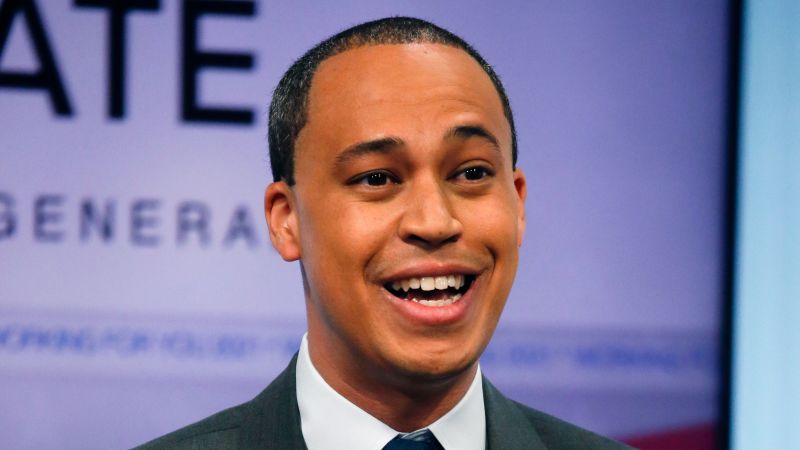In the 2023 Virginia Democratic primary elections, former Delegate Jay Jones has emerged as a strong contender for the position of attorney general after successfully securing the Democratic nomination. His victory signals a potential legal challenge to President Donald Trump’s policies within the state. The race drew significant attention, as it represents one of the critical down-ballot contests that reflect the political climate as the state gears up for the upcoming general election in November.
Jones’s path to the nomination was not without contention. He faced off against Shannon Taylor, who positioned herself as a candidate with extensive criminal prosecutorial experience, painting Jones as lacking in this area. Despite these criticisms, Jones managed to clinch the nomination with a statement declaring his readiness, both to engage in the electoral fight and to aim for a win in November against incumbent Republican Attorney General Jason Miyares.
Having served as a representative in Norfolk for four years, Jones comes from a political lineage in Hampton Roads. His father was also a delegate, while his grandfather notably became the first Black member of the Norfolk School Board. Jones previously sought the attorney general position in a 2021 primary but lost to Mark Herring, the Democratic incumbent at the time. His current victory signifies a newfound momentum in his political career.
As Jones prepares for the battle against Miyares, he is not the only Democratic candidate vying for a significant position in this election cycle. The race for lieutenant governor remains tight as State Sen. Ghazala Hashmi leads former Richmond Mayor Levar Stoney, although the count of ballots has yet to conclude, leaving the contest unresolved. This race will contribute to shaping the statewide Democratic ticket that will face Republicans in November.
The November gubernatorial election is poised to be particularly historic, featuring candidates Abigail Spanberger as the Democratic nominee and Winsome Earle-Sears representing the Republicans. Spanberger ran unopposed, while Earle-Sears is the sole Republican who qualified after other contenders failed to meet the requirements. Should either candidate win, Virginia would make history by electing its first female governor, an achievement that has been long overdue since the days of Patrick Henry’s governorship nearly two and a half centuries ago.
In a broader context, Virginia stands as one of two states—along with New Jersey—holding statewide elections following a presidential election. These races often act as a barometer for the political sentiment heading into the critical midterm elections. Analysts are keenly observing voter attitudes, particularly as Trump returns to the national stage, and Republicans exert their influence within Washington, D.C.
In recent years, the political dominance of the Democratic Party in Virginia has shown signs of erosion, inching the state closer to swing status in national politics. Notably, Republican Governor Glenn Youngkin secured victory against former Governor Terry McAuliffe in 2021. Although Democrats reclaimed control of the legislature in 2023, the margin by which Kamala Harris won Virginia was much slimmer than Biden’s comprehensive victory in 2020, reflecting a potential shift in voter allegiance.
Despite these challenges, history seems to favor Democrats in statewide contests, particularly against the backdrop of a sitting president’s party often facing setbacks in Virginia. Additionally, with Trump having not won the state during his presidency, it raises the question of whether the Democratic ticket will experience rejuvenation as the general election approaches.
Among the six Democratic candidates vying for the lieutenant governor position, common themes emerge concerning policies on abortion rights, living wages, affordable housing, and healthcare accessibility. Distinctions between the candidates are primarily regional, as they navigate various districts and emphasize localized issues pertinent to their constituents.
State Sen. Hashmi, hailing from Richmond, is notable for her strong advocacy for reproductive health and has received endorsements from pro-abortion rights political action committees. On the other hand, Stoney highlights his connections within the Democratic Party, showcasing a history of service under former Virginia Governors. This intra-party contest underscores the dynamics at play, particularly in a race framed against Trump’s administration, contributing to the overall shaping of the Democratic strategy in Virginia.
As the elections draw closer, the Republican primaries have seen less contention, with only one candidate per contest advancing to the ballot. Earle-Sears’s path to the gubernatorial nomination reflects the intra-party challenges republicans face, while Miyares faces off against Jones citing ideological differences that he believes make Virginia less safe.
The stakes are high as all 100 seats of the House of Delegates will be contested in November. Several primaries are taking place in competitive districts, shaping the landscape of Virginia’s political future. The upcoming electoral battle promises to be a pivotal moment not only for the state but for the national political climate.



